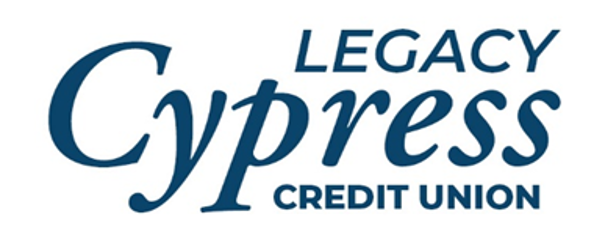20 Excellent Tips For Deciding On Business Investment Management Planning
20 Excellent Tips For Deciding On Business Investment Management Planning
Blog Article
10 Suggestions For Sustainable Investment, Asset Or Wealth Management Companies/Firms
Here are ten detailed guidelines that will you make informed decisions and conduct study when you are evaluating companies or businesses who manage wealth or assets. These guidelines will help make sure that the investments you choose align with your financial goals and your beliefs regarding sustainability, social and environmental aspects. Each one has pros and cons to ensure a balanced evaluation.
1. ESG Advisory Services: Value and Charges
Tips. Sustainable investment companies will cost more when they offer specialized engagement and research.
Pros Pays for deep knowledge and impact.
Cons: Fees that are high can result in lower returns.
Re-evaluate the minimum investment amount
Certain ESG companies cater to only high net worth institutions or individuals with very high minimums.
Focus and quality are the primary advantages.
Cons: May exclude smaller investors.
3. Look Into Impact Investing Opportunities
Certain companies offer impact funds that allow your money to be used directly to fund projects.
Pros: Tangible social/environmental benefit.
Cons: Often not liquid and higher risk.
4. Examine for exposure to Fossil Oil
Find out the breakdown of fossil fuels used or exposure to high emission industries.
Cons: Alignment with the goals of climate.
Cons: Full disinvestment may hinder access to lucrative sectors in the short-term.
5. Do you know about diversity and Inclusion?
A tip for ethical companies is to "walk the talk", with diverse leadership teams as well as internal ESG policies.
Pros: Reflects real values and broad perspectives.
Cons: Diversity cannot provide investment expertise.
6. Confirm that clients are educated and have engaged
Tip: Look for firms who provide ESG webinars white papers, webinars, and individual impact reports.
Cons: Clients are not informed or empowered.
Cons: Customers who do not require frequent updates could be overwhelmed.
7. Determine if the company is a Fiduciary
Tip: Select firms which are legally bound to follow your highest financial and moral best interests.
Lower Risk of Conflict of Interest
Pros: Some companies that focus on ESG may still prioritize sales over fiduciary duty.
8. Ask About Climate Risk Scenario Planning
Tip: Top-tier firms model portfolio outcomes under various climate change scenarios.
Positives: A proactive approach to future dangers.
Cons: Models can be speculative.
9. Review ESG Integration in Fixed-Income Products
Tip: Many firms now offer green bonds or social bonds--ask how these are selected.
Pros: Fixed-income missions with a long-term view.
Cons: There are still less options, standards, and choices available in the market.
10. Transparency and Public Commitments are being investigated
Tips: Does your company has sustainability reports? Do they take part in Climate Action 100+ projects or Net Zero Initiatives, or any other partnerships with others?
Pros
Cons: Commitments without any action could still be greenwashing. Take a look at the top rated investment firms for website advice including banks in tallahassee, austin texas banks, nw savings bank, bank orlando, first security bank and trust, us bank loan, top 10 banks in usa, banks in united states, first financial bank login, banks in san antonio and more.
10 Tips On Commercial Banking Accounts Located In Palm Beach, Florida
Here are 10 specific suggestions for business bank accounts located in Palm Beach, Florida, tailored to the region's unique economic and financial environment. Each tip contains a clear explanation along with pros, cons and other information to help you make informed choices about your banking.
1. Look Into Bundled Services
Some banks mix checking as well as payroll, insurance for business, and credit card processing.
Pros: Lower costs and streamlined services.
Cons Cons: Being tied to a single provider can make it difficult to save money and have more flexibility.
2. Look into Business Credit Card Options
Tip: Look for cards that earn cash back, travel rewards, or integrate with the accounting software you use.
Cons: It can be difficult to keep track of the expenses.
Cons: Interest is charged if balances not paid off every month.
3. Develop a relationship with a seasoned business banker
A tip A Relationship Banker is able to assist with loan recommendations as well as financial planning and loans.
Pros: Faster resolution of problems and a more personalized service.
Pros: This feature might not be offered by all banks or accounts.
4. Review ACH and wire Transfer Capabilities
Compare the fees charged for both foreign and domestic wire transfers. You can also determine if your bank will allow you to use ACH batch payments.
Benefits Pay vendors and employees in a short time.
Cons: The charges for wire transfers can range between $15 and $45.
5. Use Fraud Protection Tools
Tips: Services such as Positive Pay, dual authentication and account alerts can help to prevent fraudulent transactions.
Pros: Reduces fraud risk, protects sensitive data.
Cons: Usually limited to premium account tiers, or accessible at an additional cost.
6. Select Banks that Offer Business Networking Opportunities
You can find some banks that sponsor local chambers of commerce, business mixers or educational events.
Pros : Excellent for partnership and marketing.
Cons: It may not be offered in all sectors or at all times.
7. Confirm FDIC coverage or NCUA insurance coverage
Tips. Make sure you are covered up to a maximum of $250,000 per institution, per organization.
Benefits: Guards against institution failure.
Cons: Splitting money between different accounts or banks could be necessary to cover all of your requirements.
8. You can access Multi-User Online Banking to gain access to your bank account
TIP: Choose the bank that allows you to grant access to bookkeepers, partners, or staff with tiered permissions.
Benefits: Improves accountability, and operational efficiency.
Cons: Small banks may not offer advanced permission controls.
9. Open Accounts that align to your Business Growth Plans
Tip: Select a banking institution that will allow for expansion across several locations, if you plan to expand across Florida or nationwide.
Benefits: This eliminates future account conversions.
Cons: The service provided by national banks can be a bit lacking.
10. Prepare Documentation Required Before Opening
Bring your EIN (EIN number) and your Articles of Incorporation, Business License, and Operating Agreement to the appointment.
Pros. Ensures smooth and quick account setup.
Cons: There are delays when something is missing or your records don't match. View the top rated trust administration Palm Beach FL for blog examples including first online bank, bank online, big investment banks, bank 1, f1rst financial bank, best bank in usa, community bank & trust, community bank customer service, western bank, federal savings banks and more.